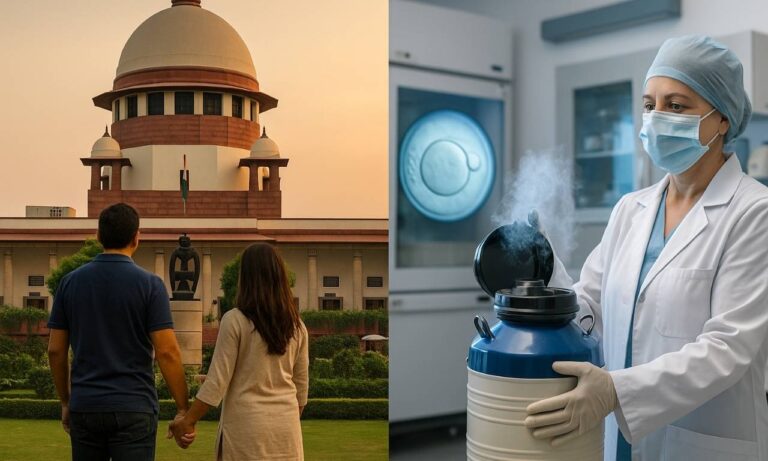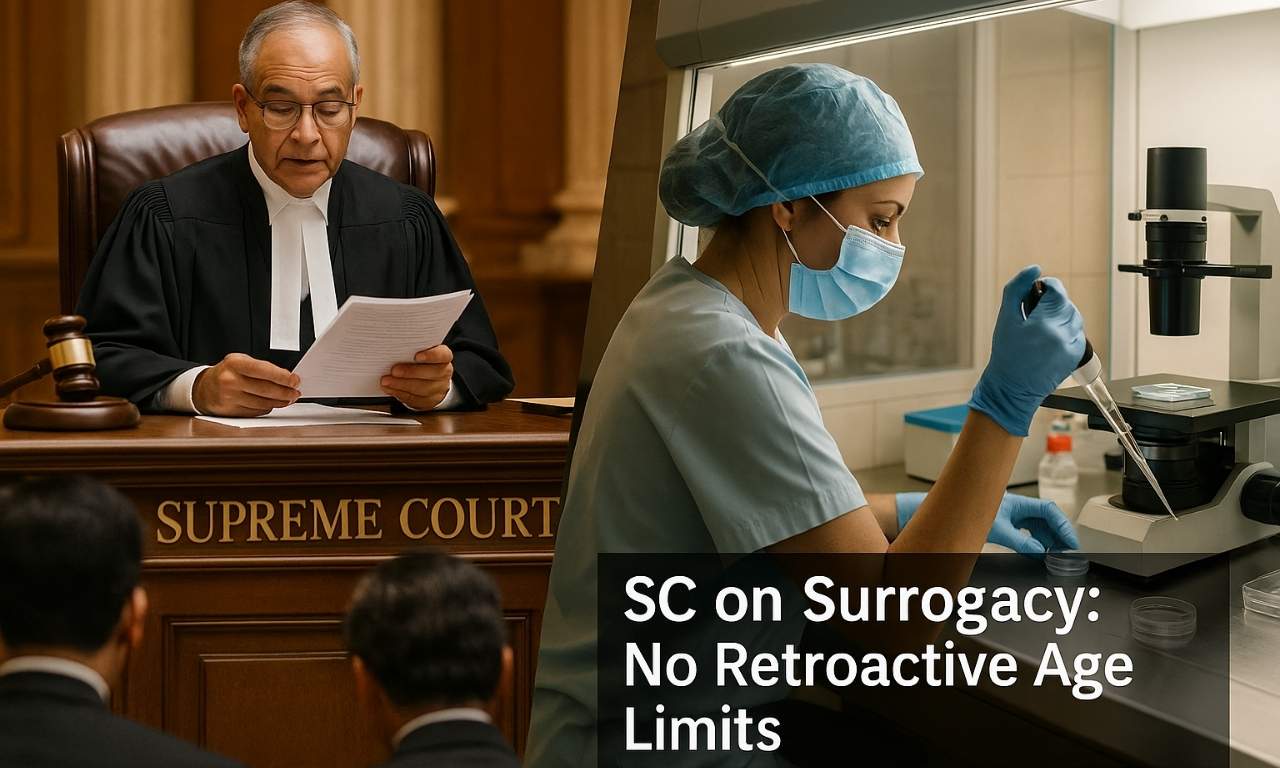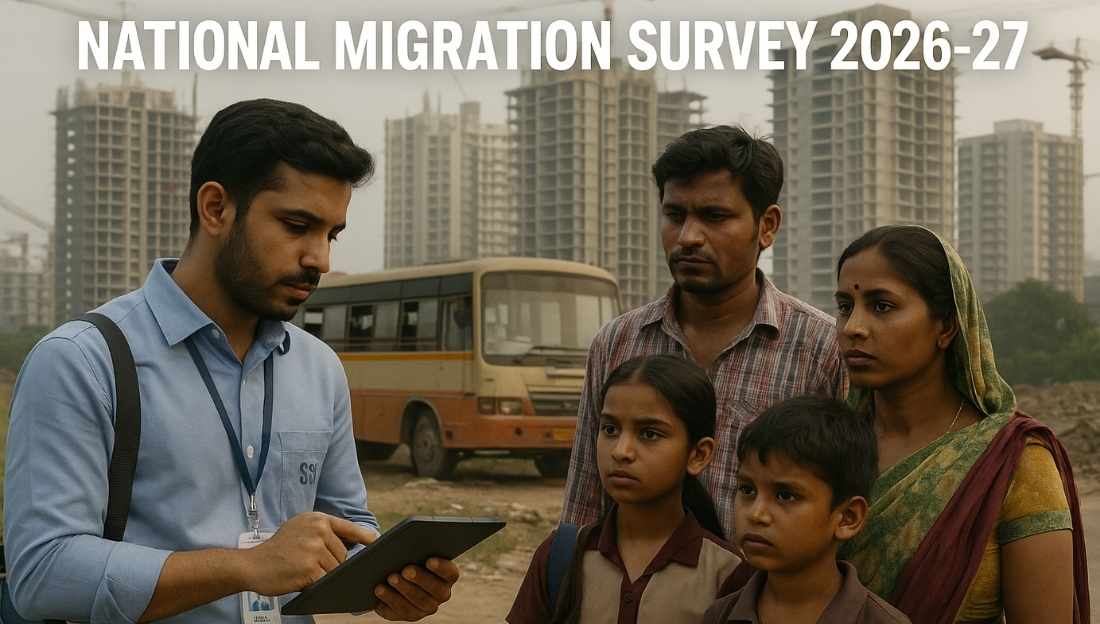The Supreme Court of India ruled that the age limits under the Surrogacy (Regulation) Act, 2021) cannot be applied retrospectively to couples who had already initiated the surrogacy process or preserved embryos before the law came into effect. The decision upholds reproductive rights and legal fairness under Article 21.
Background of the Case
- The petition involved couples who had frozen embryos before the Surrogacy Act, 2021, came into force.
- Authorities later denied permission for surrogacy, citing new age restrictions introduced by the Act.
- The couples approached the Supreme Court, arguing that applying the new law to their earlier actions was unfair and unconstitutional.

Doctrine of Fairness
- The Court held that laws cannot operate retrospectively if they take away vested rights or impose new burdens.
- Retrospective application in this case violated fairness and legal certainty, fundamental principles of the rule of law.
Right to Privacy and Reproductive Autonomy
- Reaffirming the K.S. Puttaswamy (2017) judgment, the Court stated that reproductive decisions fall within personal liberty and privacy protected by Article 21.
- Individuals have the freedom to make reproductive choices, including using frozen embryos for surrogacy.
Gender and Equality Perspective
- The Court noted that restrictive interpretations of reproductive laws disproportionately impact women, who already face biological and social barriers in family planning.
- It emphasized the need to interpret such laws through a gender-sensitive and rights-based lens.
Significance of the Judgment
- Protects vested reproductive rights of couples who started the process before 2021.
- Reinforces the constitutional balance between regulation and personal autonomy.
- Ensures gender justice by preventing unfair restrictions on women’s reproductive choices.
- Sets a precedent for fair and humane interpretation of reproductive health laws.
SURROGACY (REGULATION) ACT, 2021
Objective: To regulate surrogacy practices and ban commercial surrogacy in India. Allows only altruistic surrogacy, where no monetary compensation (beyond medical expenses) is involved.
Eligibility Criteria
- Intending Couple:
- Must be Indian citizens, married for at least 5 years.
- Woman: 23–50 years; Man: 26–55 years.
- Must prove medical infertility.
- Surrogate Mother:
- Must be a married woman aged 25–35 years with at least one biological child of her own.
Penalties: Engaging in commercial surrogacy or sale of gametes/embryos attracts up to 10 years’ imprisonment and fines up to ₹10 lakh.
Conclusion
The Supreme Court’s ruling underscores that while regulation is essential, personal liberty, fairness, and reproductive autonomy must remain central to India’s legal framework.
This topic is available in detail on our main website.





